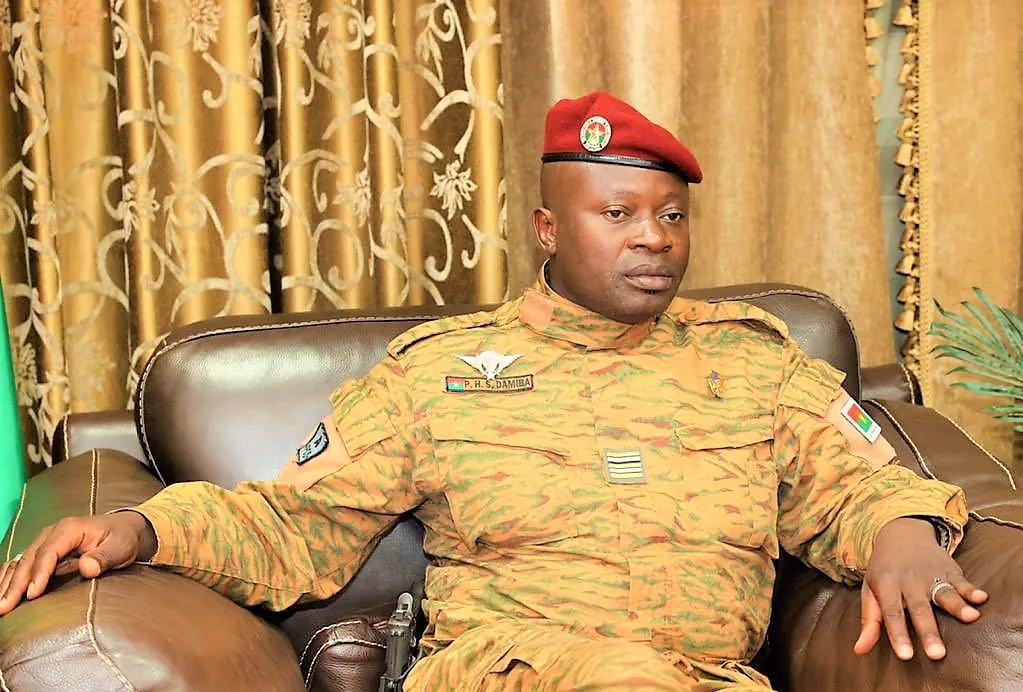Another coup too many
On the night of September 30, 2022, the Burkina Faso army ousted President Paul-Henri Damiba, marking the second coup in the troubled West African country this year. The coup had begun with gunfire near a military camp in the capital, Ouagadougou, an explosion near the presidential palace and interruptions to state television programming. And on […]

On the night of September 30, 2022, the Burkina Faso army ousted President Paul-Henri Damiba, marking the second coup in the troubled West African country this year.
The coup had begun with gunfire near a military camp in the capital, Ouagadougou, an explosion near the presidential palace and interruptions to state television programming. And on October 2, Damiba, who fled to Togo, resigned after several days of isolated skirmishes between pro- and anti-coup forces in the capital.
On January 24, 2022, the same army, led by Damiba, had deposed President Roch Kabore, after more than six years in power, following several days of unrest in the capital, Ouagadougou.
Coup is becoming an increasingly familiar pattern in West Africa. Mali underwent coups in August 2020 and May 2021. Guinea followed in September 2021 and Burkina Faso in January. And the September 30 coup is raising fears of unacceptable backslide to military rule and rollback of democracy. In September last year, the United Nations Secretary General, Antonio Guetteres, expressed concern that coups were back in Africa, and that should worry all stakeholders on the continent.
Burkina Faso’s new leader, Army Captain Ibrahim Traore, said it’s the same group of officers who helped Damiba seize power in January that removed him due to his inability to deal with the problem of insecurity facing the country; the same reason Damiba ousted former President Kabore.
No doubt, there are problems in Burkina Faso, just like every other country. And the insurgency has not helped matters, but coup is definitely not the answer.
These problems can be tackled by a democratically elected government if there is the will. After all, the recently ousted military leader was not able to provide the solution and that should say something. The current situation in Burkina Faso is not helped by the nature of the new leadership. Until he overthrew Damiba, Traore was a relatively low-ranking officer running an artillery regiment in a small northern town, meaning that a country in the midst of such crisis is in the hands of an ill-prepared and inexperienced 34-year-old and his supporting officers.
The military should stick to the commitments made to the Economic Community of West African States (ECOWAS) to restore constitutional order not later than July 1, 2024.
They should ensure proper implementation of the transitional programme. The situation in the country seems perilous with the displacement of around two million people, about 10 per cent of the country’s 22 million population.
Already, there is temporary suspension of humanitarian operations and donor fatigue which has exacerbated the severe hunger and food insecurity affecting about 3.5 million people. This, therefore, means that everything possible must be done to ensure a properly elected government is installed as soon as possible.
The truth is that the spate of coups in West Africa is becoming embarrassing and something must be done to stop it. We cannot claim to have forgotten the damage done to the continent due to the disruption caused by military rule. In fact, this current spate of coups will only roll back the gains recorded from democracy. Democracy no matter how bad is no excuse for military rule.
Citizens must also stop providing support for this act. Even where they are not comfortable with the leadership, they should not support illegal take-over of government as seen sometimes through jubilations on streets.
Sadly, the regional body, ECOWAS, seems incapacitated to stop the coups outside the realms of trade and other economic sanctions.
There are exacerbated long-standing anti-colonial grievances against France and boosted pro-Russian sentiment, which echoed among the celebrating coup supporters in Burkina Faso. Yevgeny Prigozhin, founder of Russia’s mercenary army, the PMC Wagner Group, has also openly supported Traore, the September coup’s leader.
Traoré’s comments so far suggest he is open to working with all international partners excluding France, who Burkinabes perceive as having worsened civilian casualties in the region. They are also seeking the assistance of Turkey, which has increased its military ties in Africa.
This is alarming because a new scramble for Africa is on between the US, Europe, UK, Russia and China and minor players like India and Turkey. And they are not here for Africa’s interest but theirs. Africans and their leaders should know that and be mindful of engagements they have with them.
ECOWAS must work towards addressing the underlying factors that lead to these coups. African governments need to respond better to governance that takes care of the youths and the general population.
ECOWAS and the African Union (AU) should marshal out regional and continental efforts to solve the insecurity issue which is the new excuse by adventurers in the military to take power. And the time to do that is now. The gains of democracy on the continent must not be eroded.
